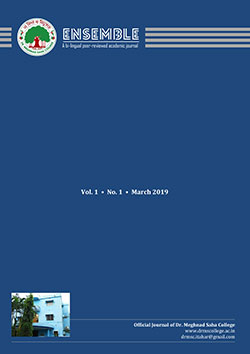An Experiential Study of ‘Conditional Agency’ of Bengali Widows with Reference to the Autobiographies of Saradasundari Devi and Rassundari Devi
Abstract
In the late nineteenth and early twentieth-century Bengal emerged a new batch of educated widows who were distinguishable from the traditional Bengali Hindu widows because of their remarkable self-consciousness about their peripherality within the social order. The intention of my article is that of disputing the prevalent assumption of the homogeneity of the widowed experience in Bengal society by drawing attention to the heterogeneous individualities resulting from stratifications within these emergent widow populations, owing to different lifestyles, varying degree of access to education,diverse social standings, andvarious forms of suppression.Rassundari Devi’s Amar Jibon (1876)and Saradasundari Devi’s Atmakatha(1913) are accounts of the experience of widows who were marginalized by society, handed the bare minimum necessities for their existence, and deprived of the pleasures of the traditional experiences of motherhood. I propose the term ‘New Widows’ to highlight how the effects of education modified their individuality in unconventional directions, as reflected in the fictional narratives by Rabindranath Tagore and others. Close attention to the texts shows that the disparity between the aspirations of the New Widow, and her limited reach and frustration results in an acute self-awareness.
Keywords: Empowerment, Emancipation, Heterogeneous identities, Literacy, New Widow, Patriarchal society
https://doi.org/10.37948/ensemble-2021-0202-a027
Views: 1794



